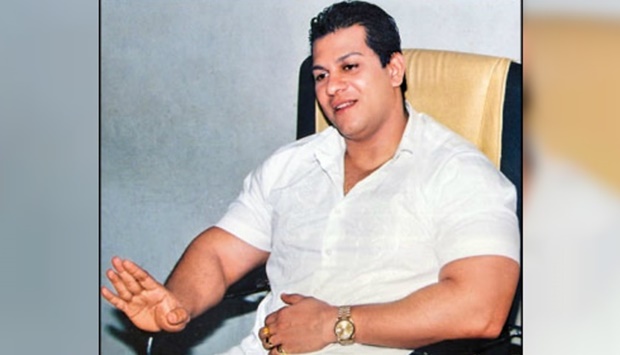Sri Lanka's Supreme Court suspended a presidential pardon for a murderer associated with the ruling Rajapaksa family Tuesday, ordering his immediate return to jail in a landmark decision.
A three-judge bench asked the police to arrest Duminda Silva, who was facing the death penalty for a 2011 murder but was freed in June after President Gotabaya Rajapaksa granted him an amnesty."The court fixed a further hearing for September 1, but wanted the police to carry out the interim order of arresting Duminda Silva and return him to jail," a court official said.
He said the decision was given following an unprecedented challenge to the presidential pardon.
Hirunika Premachandra, the daughter of former legislator Bharatha Lakshman -- who was shot dead by Silva and his associates -- filed the petition saying his release was illegal.
"This decision of the Supreme Court is historic," Premachandra told AFP.
"No one has challenged a presidential pardon before and I am very pleased that the court has demonstrated its independence."
The killing happened during a shoot-out in the capital Colombo, between rival factions of the same political party.
Lakshman was left with 24 bullet wounds, mostly to his back, while three of his supporters were also killed.
Silva was injured when Lakshman's bodyguards fired back.
President Rajapaksa made Silva chairman of the National Housing Development Authority after he walked free in June last year.
His release drew international condemnation, with the US ambassador saying it undermined the rule of law in the South Asian nation, which is emerging from decades of war.
Within four months of winning elections in November 2019, Rajapaksa released an army officer sentenced to death for slitting the throats of Tamil civilians, including four children, during the island's bloody ethnic war.
Staff Sergeant Sunil Ratnayake was to be hanged for the December 2000 massacre, in a case held up by previous Sri Lankan governments as an example of accountability over abuses during the conflict.
Sri Lanka's successive governments have denied allegations by rights groups that 40,000 Tamil civilians were killed by security forces in the final months of the war, which ended in May 2009.

